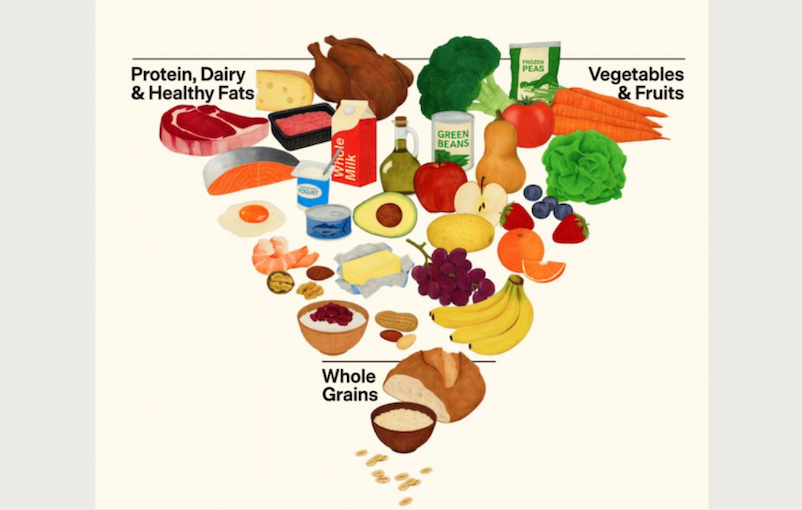3 Things Women in Their 40s & 50s Should Know About Their Health
Three essential things every woman should know to feel strong, balanced, and energized through midlife and beyond.

A primary care membership for patients who want more. Primary Care. Nutrition. Wellness. All under one roof.
Your 40s and 50s are a powerful time, but they can also be a period of major physiological change. Shifts in muscle mass, hormone levels, metabolism, and stress resilience all become more noticeable, and how we care for ourselves during this time can shape how we feel for decades to come.
We asked our Physician Associate and women’s health expert, Ali, the three key things every woman should know to stay strong, balanced, and energized through midlife and beyond:
1. Muscle Is Medicine
One of the most important things we can do for our long-term health is preserve (and build!) muscle mass. Starting in our 30s, we naturally begin to lose muscle, a process called sarcopenia, which accelerates in our 40s and 50s, especially during and after menopause.
Why does this matter? Muscle isn’t just about strength but it also plays a crucial role in:
- Metabolism (more muscle = higher resting metabolic rate)
- Blood sugar regulation
- Bone density and fall prevention
- Mobility and independence later in life
What to do:
Aim for at least three strength-based workouts per week. The key is consistency and progressively challenging your muscles over time. We can’t recommend Evlo Fitness enough.
2. Stress Accelerates Aging
Let’s be honest, midlife is full. Between careers, family responsibilities, and the natural emotional weight that can come with this stage of life, chronic stress often becomes the norm. But just because it’s common doesn’t mean it’s benign.
Persistent stress increases levels of cortisol (your body’s primary stress hormone), which can lead to:
- Sleep disruptions
- Weight gain (especially around the abdomen)
- Mood issues and brain fog
- Hormonal imbalances
- Accelerated aging at the cellular level
What to do:
Managing stress isn’t about adding more to your to-do list, it’s about finding a few small, sustainable practices that help you feel grounded. This might look like:
- Daily movement
- Meditation or breathwork
- A weekly massage or bodywork session
- Simply creating space in your day for stillness
Start small and stay consistent. Even 5–10 minutes a day can make a meaningful difference.
3. Balance Your Blood Sugar to Balance Your Hormones
Many women are surprised to learn that blood sugar imbalances (the ups and downs of glucose levels throughout the day) can significantly affect hormonal health, particularly in perimenopause and menopause.
Symptoms like energy crashes, irritability, anxiety, weight gain, and sleep disturbances are often connected to unsteady blood sugar, which in turn affects estrogen, progesterone, and cortisol.
What to do:
- Prioritize protein at every meal, especially in the morning. This helps keep blood sugar stable and energy levels consistent throughout the day.
- Avoid “naked carbs” (carbohydrates eaten alone). Always pair carbs with a protein or healthy fat to slow digestion and minimize blood sugar spikes.
- Get your hormone labs and metabolic markers checked to better understand how your body is responding to the changes of midlife.
The Bottom Line
There’s no one-size-fits-all approach to health in your 40s and 50s, but there are foundational habits that make a big impact: build and protect your muscle, manage your stress, and stabilize your blood sugar.
At The Lanby, we specialize in personalized, root-cause care that supports women through all stages of life. If you're looking to better understand your hormones, optimize your workouts, or feel more in control of your health, we're here to help you build a plan that works for you.

If you're curious to learn more about The Lanby, book a free consult call and we'll chat about how The Lanby can be your personalized long term health and wellness partner.

Kendall is a graduate of the University of Mississippi, with a B.A. in Integrated Marketing Communications and a minor in Business Administration. She received her certificate of Nutrition Science from the Friedman School of Nutrition at Tufts University.

Chloe holds a bioengineering degree from the University of Pennsylvania. As a breast cancer survivor, her insights shape The Lanby's patient-centric approach. Leveraging her healthcare strategy background, Chloe pioneers concierge medicine, bridging gaps in primary care.

Tandice was recognized with the Health Law Award and named a Ruth Bader Ginsburg Scholar at Columbia Law School. Tandice's editorial role is enriched by her insights into patient autonomy and gene modification legalities. Passionate about bioethics, she is committed to crafting patient-centric healthcare solutions.





